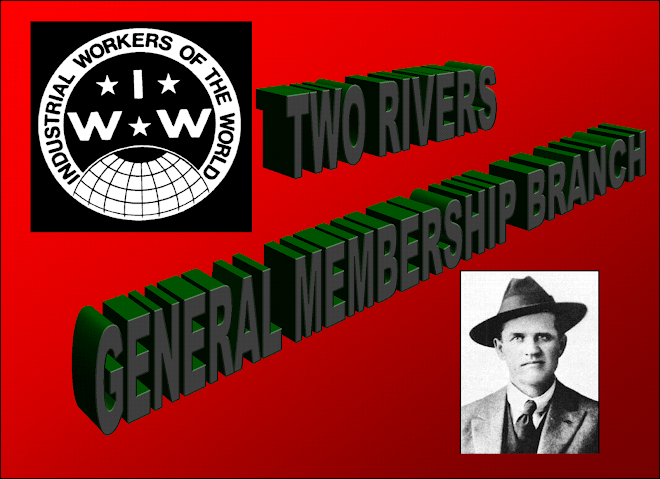Unions: A Surprise American Favor
December 20, 2008 By Dick Meister
Dick Meister's ZSpace Page
Join ZSpace
You certainly wouldn't think that most Americans approve of unions. After all, only about 12 percent of those who work for a living are union members.
But despite that low percentage, and despite the frequent anti-union messages delivered by some of the country's most influential corporate and political leaders, a new Gallup poll shows that almost 60 percent of the people surveyed approved of unions. Less than 30 percent disapproved.
Most of the support for unions comes from Democrats and independents. It works out to 72 percent of Democrats favoring unions, 63 percent of independents favoring them - but only 38 percent of Republicans in favor.
Almost two-thirds of those polled believed that unions should have more influence, or at least the same amount of influence, as now. Only about one-third said they wanted unions to have less influence.
Other polls have also shown strong public support for unions. One of the most significant showed that more than three-fourths of Americans support enactment of strong laws to protect the right of workers to decide freely on whether they want their workplaces to be unionized.
The National Labor Relations Act is supposed to guarantee that, but the law is only barely enforced and is greatly in need of strengthening.
Studies show that thousands of employers regularly intimidate workers who support or attempt to organize unions. They often fire or threaten to fire them or otherwise punish them, despite the law.
Employers order supervisors to spy on organizers. They force workers to attend meetings at which employers describe unions as evil dues-grubbing outsiders. They often claim - falsely- that unionization will lead to pay cuts, layoffs, outsourcing of work or even force them out of business.
The legal penalties for such actions are slight - usually small fines at most. Often the fines are not even imposed. And workers fear complaining to the government about violations because it usually takes months - if not years - for the government to act, and the complaining workers could meanwhile be fired.
That keeps many workers from even trying to exercise their union rights. Surveys show, in fact, that more than 60 million non-union workers want to unionize but won't try because they fear employer retaliation. And for good reason: Every year, more than 60,000 workers who do try to organize unions are punished, half of them fired.
There's a remedy for that - the Employee Free Choice Act that's been before Congress for several years. It would greatly increase the penalties on employers who violate workers' union rights, fining them up to $20,000 per violation. And employers who stall in contract negotiations with workers who vote to unionize - another common tactic - would have the contract terms determined in mediation or dictated by an arbitrator.
The key provision of the proposed law would grant union recognition on the showing of union membership cards by a majority of an employer's workers, rather than holding an election, as is now done in most cases. The law was like that originally, with no lengthy election campaigns and thus less opportunity for employers to intimidate workers.
Opponents of the Free Choice Act have seized on that so-called card check provision as a violation of democratic principles. They claim it would deny workers the basic democratic right of a secret ballot. But there are at least two major flaws in that argument:
The Free Choice Act says if a majority of an employer's workers ask for unionization to be determined by a secret ballot election rather than by a card check, an election will be held. Secondly, those union representation elections that opponents of the proposed law like so much are in themselves serious violations of basic democratic principles.
Employers now openly violate the provisions of the Labor Relations Act that govern election campaigning. They electioneer among voters at their workplaces any time they wish, while prohibiting organizers from entering the premises or even posting pro-union material. And they require voters to attend pre-election meetings at which only the employer's side is presented.
What's more, the voting is held on the employer's property, with voters escorted to the polls by employer representatives. And employers who lose elections can delay recognizing the results for years. That's democracy?
The Free Choice Act passed the House handily last year, but failed to get the 60-vote majority to overcome a Republican filibuster in the Senate. Chances seem much better this year, in part because of strong support by President-elect Obama, who was a co-sponsor of the measure in the Senate and has pledged his continued strong support, as have most Democratic members of Congress.
The AFL-CIO's campaign for the law is one of organized labor's biggest ever, involving millions of dollars and millions of members. But the opposition is waging what's shaping up as an even more expensive effort, the biggest anti-union campaign in many years. It's being waged by many powerful corporate employers, the entire Republican establishment, U.S. Chamber of Commerce and other influential stalwarts of the anti-union right.
They may think they have a majority of Americans on their side, since such a small percentage of workers belong to unions. But even should they win their battle with organized labor, the polls make clear that a significant majority of Americans nevertheless support the unions that the powerful opponents of free choice would destroy.
Dick Meister is a San Francisco-based journalist who has covered labor and political issues for a half-century. Contact him through his website, www.dickmeister.com.
Comment On This Article | See All Comments (0) | View sustainers that like this article






